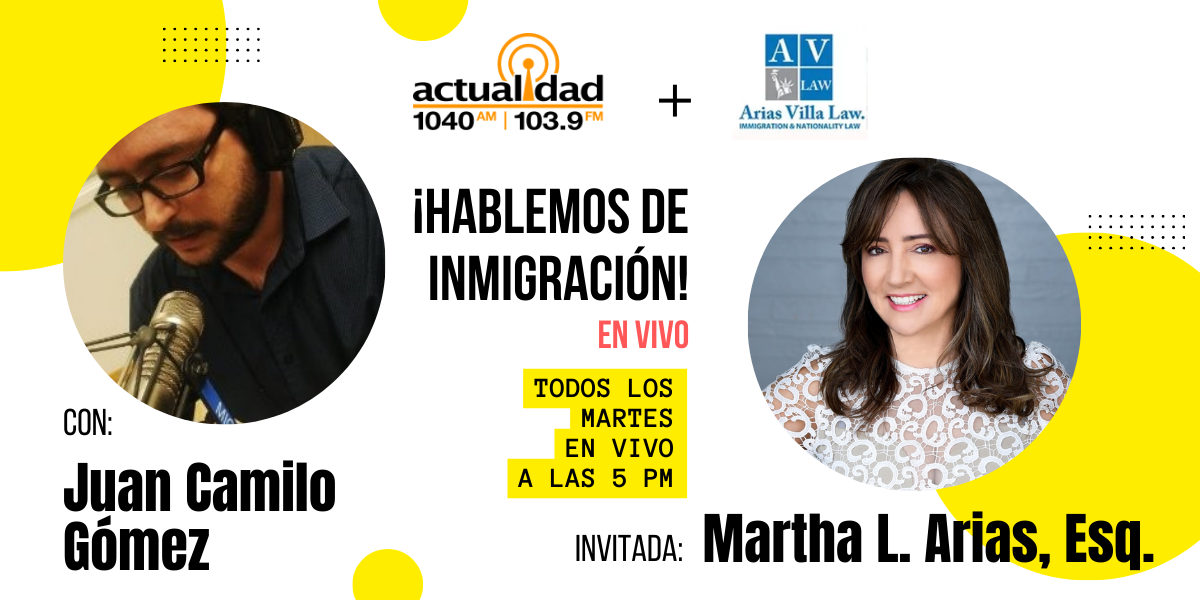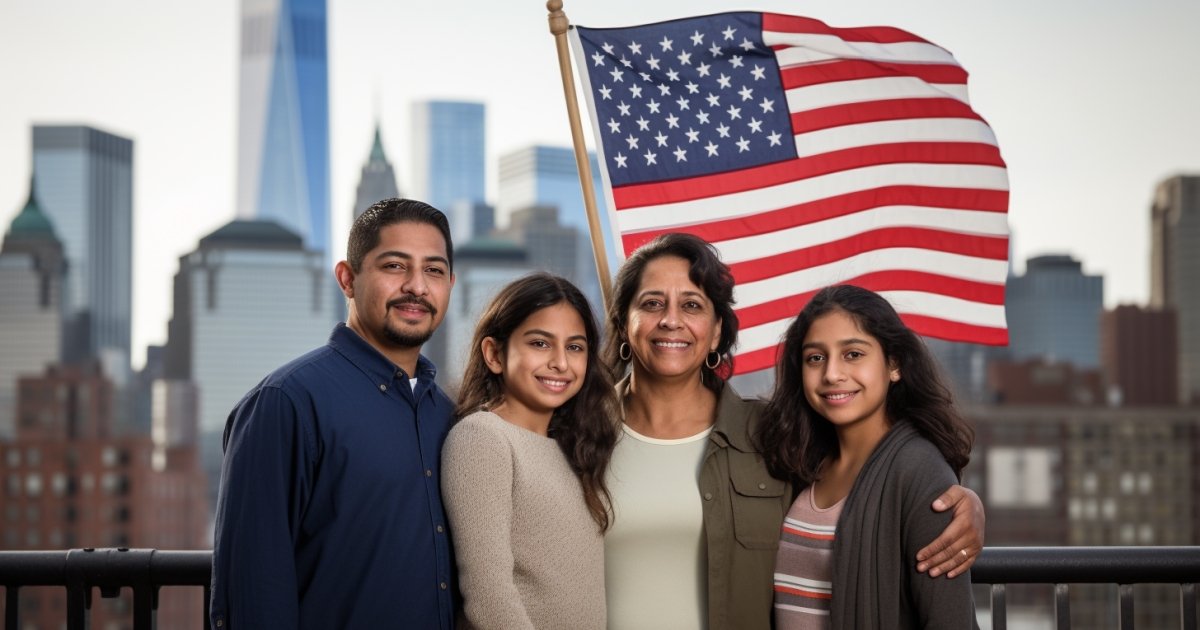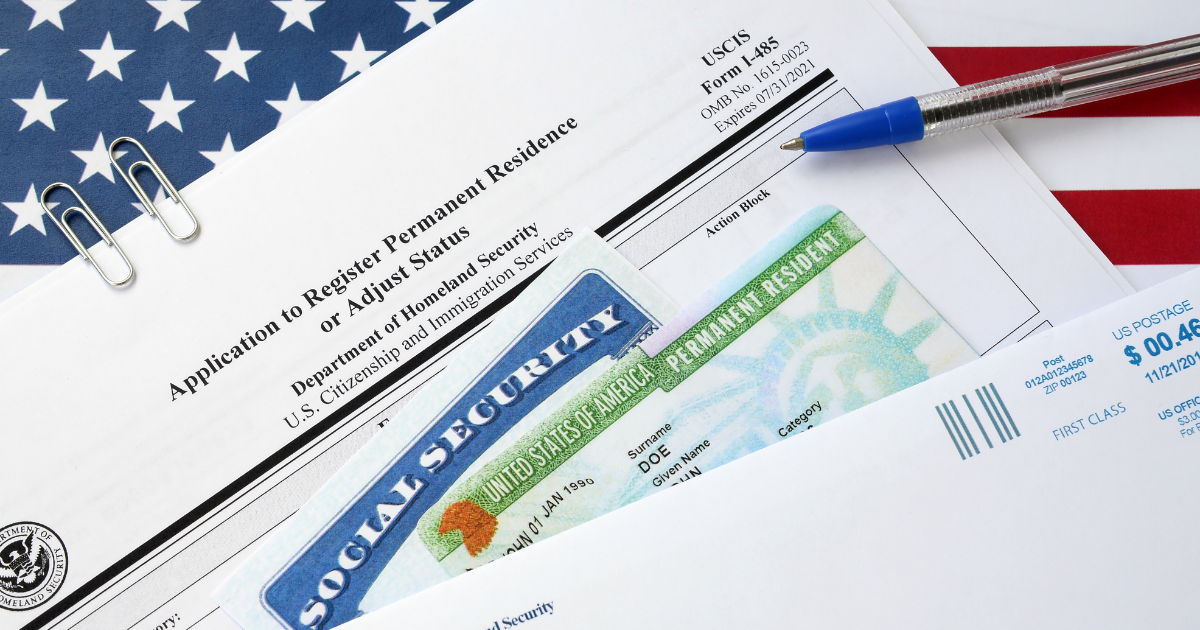Contents:
Contents:
- Introduction
- Understanding Domestic Violence and its Impact
2.1 The Dynamics of Domestic Violence
2.2 Recognizing the Signs: Forms of Abuse
2.3 The Profound Emotional and Psychological Toll - The U Visa: Providing Relief for Victims
3.1 Qualifying Crimes and Eligibility Criteria
3.2 Navigating the U Visa Application Process
3.3 Cooperation with Law Enforcement: Protections and Considerations
3.4 The Transformative Potential: U Visa as a Path to Legal Status - VAWA: Empowering Survivors to Seek Independence
4.1 Tracing the Evolution and Scope of VAWA
4.2 Inclusive Protections: Eligibility Requirements
4.3 The Self-Petitioning Process Unveiled
4.4 VAWA’s Crucial Role in Breaking the Cycle of Abuse - Special Immigrant Juvenile Status (SIJS) for Minors
5.1 Addressing Vulnerabilities Unique to Minors
5.2 Criteria for SIJS Eligibility: Ensuring Protection
5.3 Collaborative Role of State Dependency Findings
5.4 Navigating the SIJS Application Process for a Stable Future - Asylum and Withholding of Removal
6.1 Beyond Domestic Violence: Overlapping Persecutions
6.2 Asylum: Providing Refuge to Victims of Persecution
6.3 Withholding of Removal: A Legal Safeguard Against Persecution
6.4 Establishing Credible Fear and Well-Founded Fear
6.5 Navigating the Asylum Process: A Guiding Hand - Current Landscape: Immigration and Domestic Violence in the United States
- Conclusion
- References
1. Introduction:
As an Immigration Law Attorney deeply committed to advocating for the rights of victims, this comprehensive guide endeavors to illuminate the various immigration options available to those who have endured the harrowing experience of domestic violence. By navigating the intricate landscape of immigration law, we aim to provide not just information but empowerment for survivors seeking safety and independence.
2. Understanding Domestic Violence and its Impact
Domestic violence is a pervasive issue that extends beyond physical harm, encompassing a complex interplay of psychological, emotional, and financial control. Recognizing the dynamics of domestic violence is fundamental to providing comprehensive legal support for survivors.
In its essence, domestic violence is about power and control. Abusers employ a range of tactics to assert dominance and manipulate victims, creating an environment of fear and dependency. Understanding these dynamics is crucial for legal professionals advocating on behalf of survivors.
- Isolation: Abusers often isolate victims from friends, family, and support networks. This tactic reinforces the abuser’s control, making it difficult for victims to seek help or escape the abusive relationship.
- Gaslighting: Gaslighting is a form of emotional abuse where the abuser undermines the victim’s perception of reality. This deliberate distortion of truth can lead victims to doubt their own sanity, making it challenging to recognize the abuse.
- Financial Control: Abusers may exert control by managing finances, restricting access to resources, or sabotaging the victim’s economic independence. This financial manipulation further traps victims in the cycle of abuse.
- Emotional and Verbal Abuse: Beyond physical harm, emotional and verbal abuse inflict deep wounds. Constant criticism, insults, and manipulation erode the victim’s self-esteem, creating a sense of worthlessness and dependence on the abuser.
- Cycle of Violence: Domestic violence often follows a cyclical pattern, involving tension-building, explosive incidents, and a phase of reconciliation or remorse. This cycle can perpetuate a false hope for positive change, trapping victims in a repetitive and harmful cycle.
Understanding these dynamics is vital for legal professionals to approach each case with sensitivity and a nuanced understanding of the challenges survivors face. By recognizing the intricate tactics abusers employ, legal advocates can tailor their strategies to empower victims and break the cycle of abuse effectively.
Moreover, acknowledging the varied forms of abuse, whether physical, emotional, psychological, or financial, ensures a holistic approach to legal intervention. It is through this understanding that we can provide survivors with the legal support they need to reclaim their autonomy and build a future, free from the shadows of domestic violence.
3. The U Visa: Providing Relief for Victims
The U visa stands as a powerful tool within the realm of immigration law, offering a lifeline to victims of certain crimes, including domestic violence. This section will delve into the intricacies of the U visa, outlining its eligibility criteria, the application process, and the transformative potential it holds for victims seeking both protection and a pathway to legal status.
3.1 Qualifying Crimes and Eligibility Criteria:
The U visa is specifically designed for victims of crimes who have suffered mental or physical abuse and are willing to assist law enforcement in the investigation or prosecution of those crimes. Understanding the qualifying crimes and eligibility criteria is fundamental for both legal professionals and victims.
- Qualifying Crimes: The U visa covers a range of crimes, including domestic violence, sexual assault, human trafficking, and other violent offenses. Recognizing the qualifying crimes is crucial for victims to determine their eligibility for U visa relief.
- Substantial Physical or Mental Abuse: To be eligible, victims must have suffered substantial physical or mental abuse as a result of the qualifying crime. This requirement emphasizes the severity of the harm inflicted, underscoring the necessity for legal intervention.
- Willingness to Cooperate with Law Enforcement: A key condition for U visa eligibility is the victim’s cooperation with law enforcement. This cooperation is demonstrated through a certification form (Form I-918, Supplement B) signed by a law enforcement agency, prosecutor, or other relevant authorities.
3.2 Navigating the U Visa Application Process:
The U visa application process involves meticulous documentation and collaboration with law enforcement. Understanding the steps involved is vital for both legal advocates and victims seeking relief.
- Filing Form I-918: The U visa application begins with the submission of Form I-918, Petition for U Nonimmigrant Status. This form outlines the details of the crime, the harm suffered, and the victim’s cooperation with law enforcement.
- Form I-918, Supplement B: Obtaining a certification on Form I-918, Supplement B is a critical step. This certification attests to the victim’s cooperation with law enforcement and is typically provided by the investigating agency.
- Derivative Benefits for Family Members: The U visa extends derivative benefits to certain qualifying family members of the victim, including spouses, children, and, in some cases, parents. This provision strengthens the protective umbrella offered by the U visa.
- Adjustment of Status (Form I-485): Once the U visa is approved, victims may seek adjustment of status (Form I-485) to obtain lawful permanent residency. This step marks a significant milestone in the journey toward a more stable and secure future.
3.3 Cooperation with Law Enforcement: Protections and Considerations:
Cooperating with law enforcement is a central requirement for U visa eligibility. This collaboration not only aids in the investigation and prosecution of crimes but also provides protections for victims.
- Protection from Removal: Victims with pending or approved U visa applications are generally protected from removal proceedings. This safeguard ensures that victims can pursue legal relief without the immediate threat of deportation.
- Deferred Action: The approval of a U visa petition grants victims deferred action, allowing them to remain in the United States and work lawfully. This provision offers a degree of stability during the often lengthy U visa adjudication process.
- Path to Citizenship: Beyond immediate relief, the U visa serves as a stepping stone to lawful permanent residency and, eventually, U.S. citizenship. This long-term perspective underscores the transformative potential of the U visa for victims seeking a more secure future.
3.4 The Transformative Potential: U Visa as a Path to Legal Status:
The U visa is not merely a protective measure; it is a tangible pathway to legal status for victims who have endured significant hardship. Understanding the transformative potential of the U visa is crucial for legal professionals advocating on behalf of survivors.
- Breaking the Chains of Fear: The U visa provides victims with an opportunity to break free from the chains of fear and abuse. By offering protection and legal status, it empowers survivors to assert their rights and take control of their lives.
- Access to Essential Services: U visa recipients gain access to crucial services, including healthcare, education, and social benefits. This comprehensive support system aids victims in rebuilding their lives and fostering independence.
- Contributing to Community and Society: As U visa recipients transition to lawful permanent residents and citizens, they become integral contributors to their communities and society at large. This integration strengthens the fabric of the nation, emphasizing the transformative impact of the U visa beyond individual cases.
Understanding the U visa as a legal remedy for victims of crime, including domestic violence, is pivotal in the quest for justice and empowerment. As we advocate for the rights of survivors, the U visa emerges not only as a protective measure but as a beacon of hope, offering a tangible path to a future free from the shadows of abuse.
4. VAWA: Empowering Survivors to Seek Independence
The Violence Against Women Act (VAWA) stands as a landmark legislation that transcends gender boundaries, providing essential protections and pathways to independence for survivors of domestic violence. In this section, we will delve into the evolution and scope of VAWA, outlining its inclusive protections, eligibility requirements, and the empowering self-petitioning process.
4.1 Tracing the Evolution and Scope of VAWA:
VAWA, initially enacted in 1994, has undergone transformative changes to address the needs of survivors comprehensively. Its evolution reflects a commitment to combating domestic violence, sexual assault, stalking, and other gender-based crimes.
- Legislative Milestones: VAWA has been reauthorized several times, each reauthorization expanding its scope and reinforcing its commitment to protecting survivors. These legislative milestones demonstrate the ongoing dedication to addressing the dynamic challenges of domestic violence.
- Inclusive Protections: While the act’s title emphasizes violence against women, VAWA extends protections to all individuals regardless of gender. This inclusive approach recognizes that survivors, irrespective of gender identity, deserve equal access to legal remedies and protections.
4.2 Inclusive Protections: Eligibility Requirements:
VAWA offers survivors the opportunity to self-petition for legal status without relying on an abusive spouse or family member as a sponsor. Understanding the eligibility requirements is crucial for legal professionals advocating for survivors under VAWA.
- Qualifying Relationships: VAWA covers various qualifying relationships beyond spouses, including children and parents. This expansive definition acknowledges the diverse familial structures and recognizes the impact of abuse across different relationships.
- Abuse Criteria: To qualify under VAWA, survivors must demonstrate that they have been subjected to battery or extreme cruelty by a U.S. citizen or lawful permanent resident family member. This broad definition encompasses various forms of abuse, acknowledging the multifaceted nature of domestic violence.
4.3 The Self-Petitioning Process Unveiled:
A hallmark feature of VAWA is the self-petitioning process, empowering survivors to seek legal status independently. This process is designed to offer autonomy and a pathway to independence.
- Filing Form I-360: The self-petitioning process begins with the submission of Form I-360, Petition for Amerasian, Widow(er), or Special Immigrant. This form allows survivors to present their case, detailing the abuse suffered and the qualifying relationship.
- Confidentiality Protections: VAWA prioritizes survivor confidentiality. Information provided in the self-petition is kept confidential, shielding survivors from potential retaliation by the abuser. This confidentiality provision encourages survivors to come forward without fear of jeopardizing their safety.
- Access to Work Authorization: Upon approval of the self-petition, survivors gain access to work authorization, enabling them to support themselves and their families independently. This provision is a critical step toward breaking free from financial dependence on the abuser.
4.4 VAWA’s Crucial Role in Breaking the Cycle of Abuse:
Beyond its legal provisions, VAWA plays a pivotal role in breaking the cycle of abuse by providing survivors with the tools and support they need to rebuild their lives.
- Access to Support Services: VAWA connects survivors with a range of support services, including counseling, shelters, and legal assistance. These services contribute to the holistic well-being of survivors, addressing not only legal concerns but also the emotional and practical challenges they face.
- Empowering Survivors to Pursue Independence: By granting survivors the ability to self-petition and gain independent legal status, VAWA empowers them to pursue independence and break free from abusive relationships. This empowerment is a crucial aspect of the healing process for survivors.
- Community Engagement and Advocacy: VAWA fosters community engagement and advocacy against domestic violence. By raising awareness and encouraging community involvement, the legislation contributes to the broader movement to eradicate domestic violence.
Understanding the nuanced provisions of VAWA is essential for legal professionals dedicated to empowering survivors. As advocates for justice, we recognize the transformative impact of VAWA in providing not just legal remedies but a pathway to autonomy and a future free from the chains of abuse.
5. Special Immigrant Juvenile Status (SIJS) for Minors
Special Immigrant Juvenile Status (SIJS) serves as a critical legal avenue designed to safeguard the well-being of minors who have experienced abuse, neglect, or abandonment. In this section, we will explore the unique vulnerabilities of minors, the criteria for SIJS eligibility, the collaborative role of state dependency findings, and the navigational steps for a stable future.
5.1 Addressing Vulnerabilities Unique to Minors:
Minors facing abuse, neglect, or abandonment encounter unique vulnerabilities that demand a specialized legal framework. SIJS recognizes the distinct challenges that minors endure and provides a tailored solution to ensure their protection and well-being.
- Limited Capacity to Self-Petition: Minors often lack the legal capacity to self-petition for immigration benefits independently. SIJS bridges this gap by allowing qualifying minors to seek immigration relief with the assistance of a legal guardian or state court.
- Potential for Continued Victimization: Minors may be at risk of continued victimization if forced to return to their home country. SIJS addresses this vulnerability by offering protection and a legal pathway to remain in the United States, free from the threats they faced in their country of origin.
5.2 Criteria for SIJS Eligibility: Ensuring Protection:
SIJS eligibility is contingent upon meeting specific criteria that demonstrate the minor’s need for protection. Understanding these criteria is essential for legal professionals advocating for the rights of vulnerable minors.
- Juvenile Court Findings: SIJS requires findings from a juvenile court, confirming that the minor is dependent on the court or has been legally committed to, or placed under the custody of, a state agency or department. These court findings serve as a crucial foundation for SIJS eligibility.
- Best Interests of the Child Standard: The court must determine that it is not in the best interests of the minor to be reunited with one or both parents due to abuse, neglect, abandonment, or a similar basis. This standard prioritizes the well-being and safety of the minor.
- State Dependency Findings and SIJS Eligibility: State dependency findings play a collaborative role in establishing the minor’s eligibility for SIJS. Legal professionals work in tandem with state courts to ensure that the minor meets the necessary criteria for immigration relief.
5.3 Collaborative Role of State Dependency Findings:
The collaboration between immigration proceedings and state dependency findings is integral to the SIJS process. Legal professionals navigate this collaborative framework to secure protection and immigration relief for minors.
- Coordination with State Courts: Legal professionals liaise with state courts to obtain necessary dependency findings. These findings serve as a testament to the minor’s need for protection and play a pivotal role in the SIJS application process.
- Navigating Complex Legal Frameworks: The intersectionality of immigration and state dependency laws requires legal expertise to navigate complex legal frameworks. Attorneys specializing in SIJS ensure seamless collaboration between the immigration system and state courts.
5.4 Navigating the SIJS Application Process for a Stable Future:
Navigating the SIJS application process involves a series of steps aimed at securing protection and stability for minors. Understanding these steps is crucial for legal professionals advocating for the rights of vulnerable youth.
- Filing Form I-360: The SIJS application begins with the filing of Form I-360, Petition for Amerasian, Widow(er), or Special Immigrant. This form outlines the minor’s eligibility criteria, including the court findings and the basis for seeking SIJS.
- USCIS Adjudication: U.S. Citizenship and Immigration Services (USCIS) adjudicates the SIJS petition, reviewing the documentation and determining the minor’s eligibility for special immigrant juvenile status.
- Obtaining Lawful Permanent Residency: Upon approval of the SIJS petition, the minor may seek adjustment of status (Form I-485) to obtain lawful permanent residency. This step marks a crucial milestone toward providing a stable and secure future for the minor.
- Contributing to Stability and Growth: SIJS, once granted, offers minors the opportunity to contribute positively to their communities and society at large. By ensuring stability and growth, SIJS empowers vulnerable youth to overcome past adversities and build a promising future.
As legal advocates for the rights of minors, the SIJS process is not just about securing immigration relief; it is about providing a lifeline to those who have faced adversity. SIJS recognizes the unique vulnerabilities of minors and offers a legal framework to ensure their protection, stability, and the opportunity for a brighter future.
6. Asylum and Withholding of Removal
In cases where individuals face persecution or a well-founded fear of persecution in their home country, seeking asylum or withholding of removal in the United States can provide a crucial lifeline. This section will explore the nuances of these forms of relief, delving into the broader context of persecution, the criteria for eligibility, and the steps involved in the asylum process.
6.1 Beyond Domestic Violence: Overlapping Persecutions:
While this section focuses on asylum and withholding of removal, it’s essential to recognize that persecution comes in various forms. Beyond domestic violence, individuals may face persecution based on their race, religion, nationality, political opinion, or membership in a particular social group. Understanding these overlapping persecutions is fundamental to crafting comprehensive legal strategies.
- Intersectionality of Persecutions: Asylum and withholding of removal proceedings often involve a nuanced examination of multiple grounds for persecution. Legal professionals navigate this intersectionality to ensure a thorough presentation of the client’s case.
- Recognition of Gender-Based Persecution: The recognition of gender-based persecution, including persecution due to domestic violence, is an evolving aspect of asylum law. Legal advocates play a crucial role in advancing the understanding of gender-related persecution within the asylum framework.
6.2 Asylum: Providing Refuge to Victims of Persecution:
Asylum serves as a humanitarian provision for individuals who have suffered persecution or have a well-founded fear of persecution in their home country. Understanding the criteria for asylum is essential for legal professionals guiding clients through the asylum process.
- Establishing Eligibility: To be eligible for asylum, individuals must demonstrate past persecution or a well-founded fear of future persecution on account of a protected ground. These grounds include race, religion, nationality, political opinion, or membership in a particular social group.
- Credible Fear and Well-Founded Fear: Asylum seekers must establish both credible fear and well-founded fear. Credible fear pertains to a genuine fear of persecution, while well-founded fear involves presenting a credible case that persecution is likely based on the protected grounds.
- Asylum Application (Form I-589): The asylum application process involves filing Form I-589, Application for Asylum and for Withholding of Removal. This comprehensive form requires detailed information about the applicant’s background, persecution experiences, and the grounds for seeking asylum.
6.3 Withholding of Removal: A Legal Safeguard Against Persecution:
While withholding of removal shares similarities with asylum, it operates under a different legal standard. Individuals granted withholding of removal are protected from deportation to countries where they face a clear probability of persecution.
- Higher Standard of Proof: Withholding of removal requires a higher standard of proof compared to asylum. Applicants must demonstrate a clear probability of persecution on account of a protected ground, and this standard imposes a more stringent burden of proof.
- Limitations of Withholding of Removal: Unlike asylum, withholding of removal does not provide a pathway to permanent residency or citizenship. It is a form of temporary relief that prevents deportation to a country where the individual would likely face persecution.
- Form I-589 for Withholding of Removal: Individuals seeking withholding of removal file Form I-589, similar to the asylum application. However, the legal arguments and presentation may differ, emphasizing the distinct criteria for withholding of removal.
6.4 Establishing Credible Fear and Well-Founded Fear:
Establishing credible fear and well-founded fear is a critical aspect of the asylum process. Legal professionals play a central role in guiding clients through the intricate steps involved in presenting a compelling case for protection.
- Legal Representation and Guidance: Legal representation is paramount in ensuring that applicants understand the legal nuances of establishing credible fear and well-founded fear. Attorneys provide guidance on presenting evidence, crafting narratives, and navigating the complexities of the asylum process.
- Expert Testimony and Documentation: Presenting expert testimony and supporting documentation is instrumental in establishing both credible and well-founded fear. This may involve corroborating evidence, country conditions reports, and expert witnesses who can attest to the validity of the applicant’s claims.
- Adjudication by Asylum Officers: Asylum officers adjudicate credible fear interviews, evaluating the applicant’s claims and determining whether there is a reasonable possibility of persecution. Establishing a compelling case during these interviews is crucial for progressing through the asylum process.
6.5 Navigating the Asylum Process: A Guiding Hand:
The asylum process involves several stages, and legal professionals serve as guiding hands, providing support and expertise to individuals seeking refuge from persecution.
- Court Proceedings and Appeals: If an asylum application is denied, legal professionals guide clients through the court proceedings and potential appeals. The intricacies of immigration court require skilled advocacy to present a compelling case for asylum seekers.
- Access to Legal Counsel: Access to legal counsel is a fundamental right for asylum seekers. Legal professionals ensure that individuals navigating the asylum process have the necessary representation to present their case effectively.
- Collaboration with Asylum Organizations: Legal professionals often collaborate with asylum organizations and NGOs that specialize in supporting asylum seekers. This collaborative approach enhances the resources available to individuals in need of protection.
Understanding the complexities of asylum and withholding of removal is crucial for legal professionals dedicated to advocating for the rights of individuals facing persecution. As we navigate these legal frameworks, our commitment to providing refuge to those in need becomes a beacon of hope in the pursuit of justice and protection.
Conclusion:
In concluding this comprehensive guide, the paramount importance of legal pathways for survivors of domestic violence is reiterated. Beyond legal remedies, this article aims to contribute to an informed and empowered community, fostering resilience and hope for those seeking a way out of abusive situations.
References:
[1] Immigration and Nationality Act, Section 101(a)(15)(U). [2] Violence Against Women Act (VAWA), 8 U.S.C. § 1154(a)(1)(J). [3] Special Immigrant Juvenile Status (SIJS), 8 U.S.C. § 1101(a)(27)(J)










